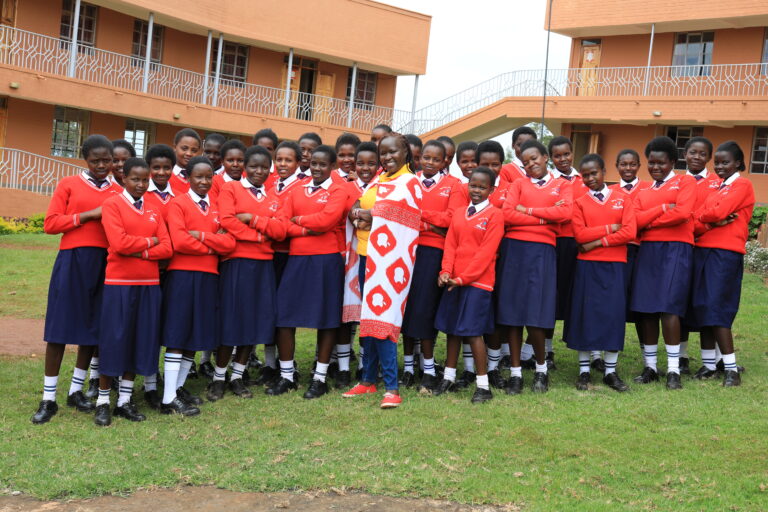The Importance of Investing in Women-Led NGOs
People often ask us how they can make the most meaningful impact on communities like ours in rural Kenya. The answer is simpler than you may think: trust and invest in us to help ourselves.
That’s what grassroots development leaders have been fighting for. We call this strategy localization, a bottom-up approach to development that puts more funding and decision-making power in the hands of local actors rather than sprawling international agencies.
Localization has gained momentum in recent years, but plenty of work remains: in 2019, a dismal 0.4% of global humanitarian funding went to local NGOs.
This isn’t just an injustice. It’s a miscalculation. It contradicts what should be a simple logic: those closest to the problem are also closest to the solution.
That’s why, when it comes to women’s rights, women are the drivers of progress, with research suggesting that women-led nonprofits are more mission-driven and socially impactful. Further, local women leaders are the best advocates for local women’s issues. But despite the value of our insight, local women are among the most overlooked and underfunded groups in philanthropy, for reasons that reveal the implicit biases of the global aid system. On this International Women’s Day, it’s time to do better.
Why? Simply put, local women have the home-field advantage. We understand the challenges our communities face because we have lived through those challenges firsthand, equipping us with a lifetime of lived experiences that no number of faraway consultants can replicate. We can, for instance:
- Navigate delicate social norms
- Understand the holistic, rather than merely overt, needs of the community
- Access locations and networks that are unreachable to outsiders
- Recognize early warning signs of danger and diagnose proactive solutions
- Accurately monitor and evaluate the success of interventions
- Fully devote ourselves to long-term transformation
And our communities realize this. As members of the very communities we serve, we have a bond of trust, something that can take foreign NGOs years to establish. And trust plays a vital role in the success and sustainability of humanitarian interventions.
On the other hand, many international organizations have historically adopted a wide-net, one-size-fits-all approach, assuming little to no difference from one community to the next. This hinders trust by creating assistance programs that are less responsive, and at times counterproductive, to a community’s needs,

The reality is that we simply need the resources and trust to implement our own solutions.
That’s true for all local NGOs, but it’s especially important for local women’s organizations, whose funding is particularly low. In 2021, just 2.1% of international humanitarian assistance was gender-specific, meaning it was dedicated to gender-related issues. But of that, only 3.1% went directly to local and national actors.
While receiving only a sliver of the funding, local actors perform most of the legwork and undertake most of the risk. We are the first responders to emergencies. We are directly vulnerable to violence and disease. And we remain in our community, even after international attention moves on.
The plain explanation for this systemic imbalance is that international donors do not always trust local actors. Small community-based organizations are considered riskier than international organizations with consistent, if at times underwhelming, returns on investment.
Unfortunately, this lack of trust is often influenced by prejudice, despite our best conscious efforts. And as intersectional targets of both sexism and racism, women of color face the hardest battle.
On the one hand, since gender-specific funding is not highly prioritized, local women’s organizations are usually forced to become sub-grantees of money funneled through international bureaucracies, which impose time-bound, project-based funding structures. On the other hand, research suggests that unrestricted funding is granted at a much higher rate to White-led organizations than to Black-led organizations.
In both arenas, women of color are more closely policed. This undue burden restricts our growth and obstructs our potential for progress.
On this International Women’s Day, it’s time to streamline feminist philanthropy around a simple, egalitarian idea: those closest to the problem are closest to the solution.
